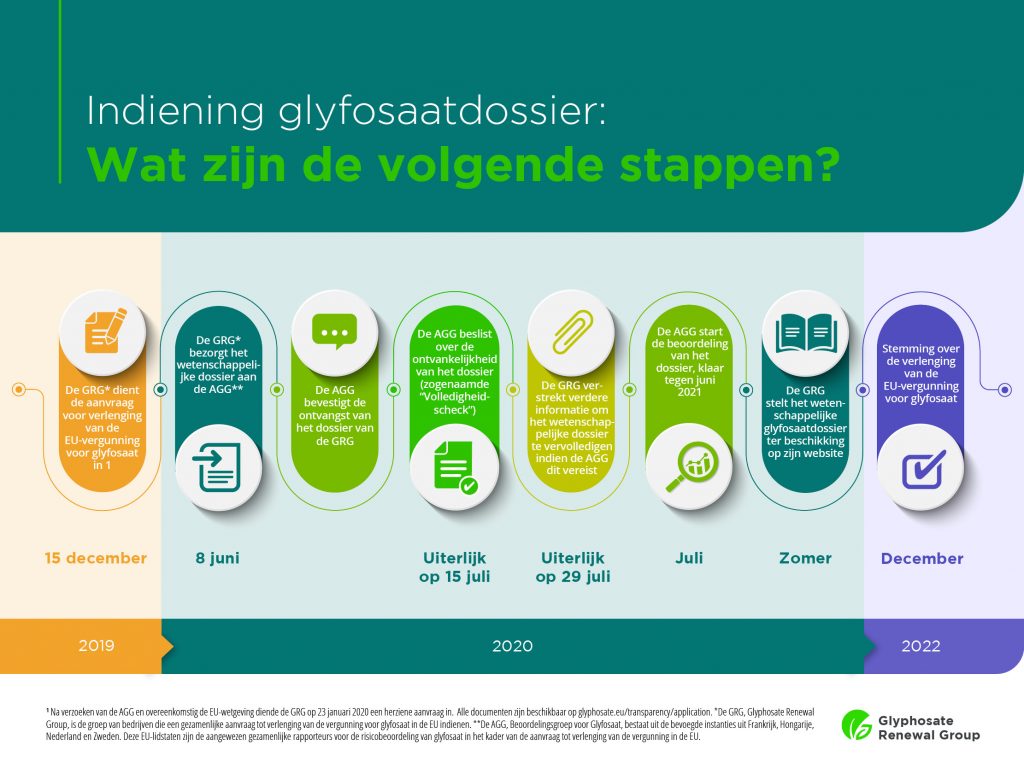Wetenschappelijk glyfosaatdossier ingediend
Op maandag 8 juni 2020 diende de Glyphosate Renewal Group het wetenschappelijke dossier in, met inachtneming van de indieningstermijn van 15 juni 2020, zoals voorzien in de Europese gewasbeschermingsverordening, met het oog op een nieuwe evaluatie en risicobeoordeling van de werkzame stof glyfosaat. Dit dossier is essentieel in het regelgevingsproces om tegen eind 2022 de EU-vergunning voor glyfosaat te verlengen.
Het doel van het dossier is de EU-autoriteiten te voorzien van de nodige wetenschappelijke feiten om te bewijzen dat glyfosaat geen risico voor de menselijke gezondheid en het milieu vormt.
Om deze risicobeoordeling door de bevoegde autoriteiten mogelijk te maken, bevat het ingediende dossier ongeveer 1.000 wetenschappelijke studies, waarvan er 100 nieuw zijn. Het omvat de eerste indiening van glyfosaat in de EU (1998), de eerste verlenging van de EU-vergunning (2017) en de huidige indiening uit 2020.Het dossier omvat ook een uitgebreide literatuurstudie van ongeveer 12.000 gepubliceerde wetenschappelijke artikels over glyfosaat die getoetst werden op hun relevantie en betrouwbaarheid.
In addition, the GRG has submitted supplementary data and evidence of the positive impact glyphosate can have on biodiversity. Glyphosate is an integral part of Integrated Weed Management (IWM) and no-till farming practices (no soil disruption by ploughing), which help to reduce greenhouse gas emissions, preserve more land for native habitats, and to provide enough food to meet the needs of a growing population worldwide.
As part of our transparency commitment, the Glyphosate Renewal Group will soon make available on its website the submitted scientific dossier, following GDPR rules (personal and confidential information will not be disclosed), allowing free and unrestricted access to anyone interested in its content.
The scientific dossier has been submitted to the Assessment Group on Glyphosate (AGG),composed of the regulatory bodies of France, Sweden, Hungary and the Netherlands. With this submission, AGG can initiate the science-based evaluation process of glyphosate and asses its safety for human health and the environment. Find more information on the next steps below and a full description of the authorisation process here.
